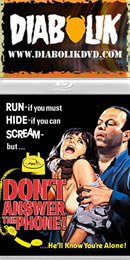
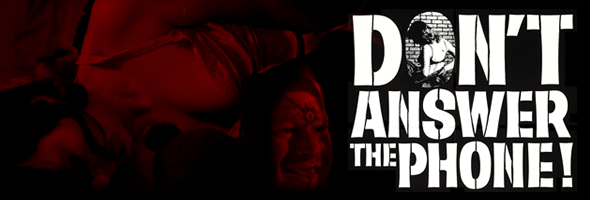


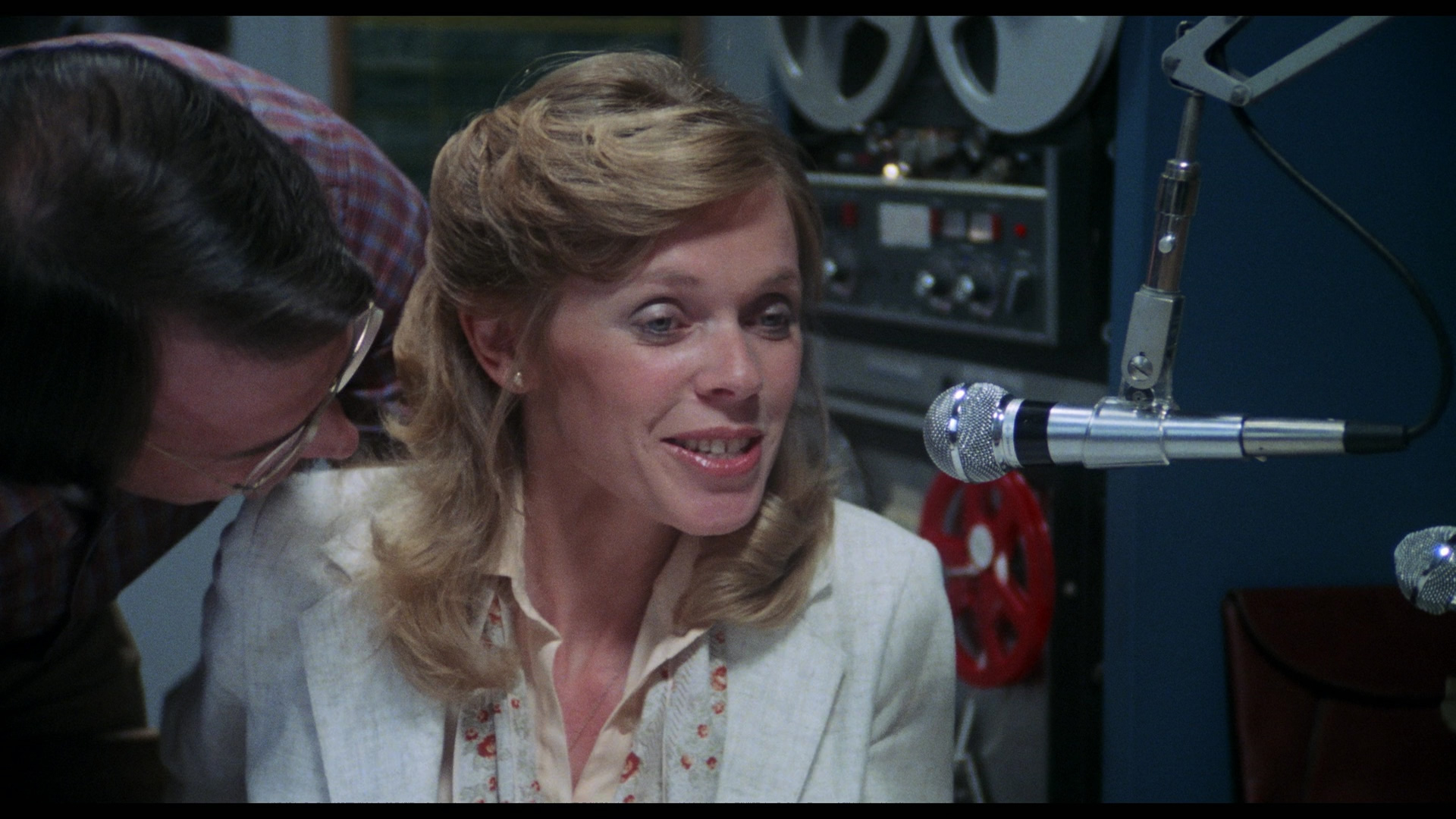
 Easily one of the sleaziest films to play major theaters during the slasher boom of the early '80s, Don't Answer the Phone! is often classified as a slasher film based on its title, meant to evoke memories of When a Stranger Calls. However, it's actually another dip into twisted pathology and Carter/Reagan-era sadism (see also: Don't Go in the House, Maniac, and Nightmare), all of which focus on lonely, urban losers who unleash their frustrations on the local (usually female) populace.
Easily one of the sleaziest films to play major theaters during the slasher boom of the early '80s, Don't Answer the Phone! is often classified as a slasher film based on its title, meant to evoke memories of When a Stranger Calls. However, it's actually another dip into twisted pathology and Carter/Reagan-era sadism (see also: Don't Go in the House, Maniac, and Nightmare), all of which focus on lonely, urban losers who unleash their frustrations on the local (usually female) populace.  particularly original about this story, but the reason Don't Answer the Phone! still maintains a cult following long after many of its peers have fallen between the cracks is definitely Worth's fascinating, wildly unpredictable performance. Somehow the actor got an "introducing"
particularly original about this story, but the reason Don't Answer the Phone! still maintains a cult following long after many of its peers have fallen between the cracks is definitely Worth's fascinating, wildly unpredictable performance. Somehow the actor got an "introducing" 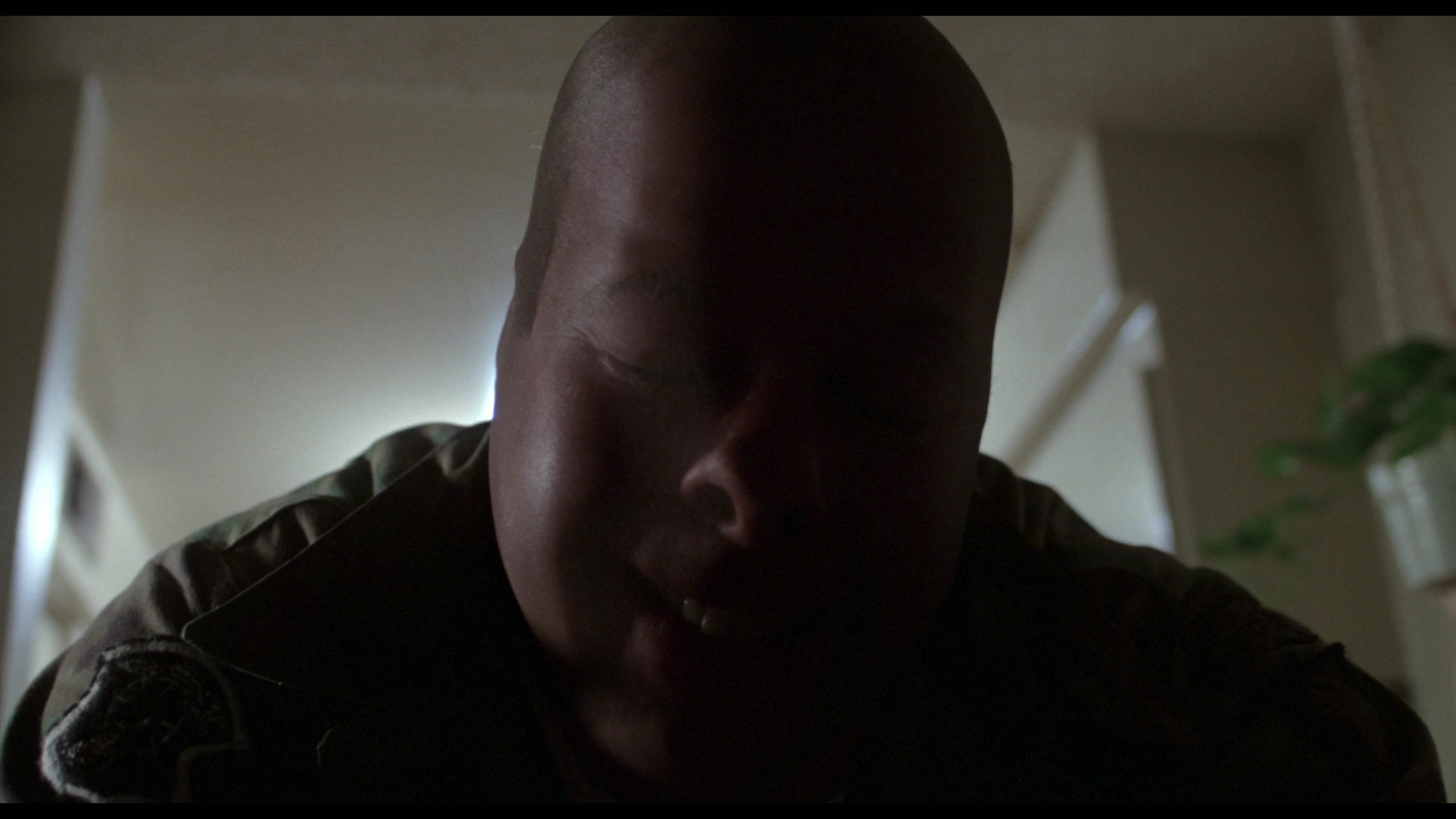 credit here despite the fact that he'd already appeared in such films as The Glove and Scream Blacula Scream, while his golden days still lay ahead with a busy career (and a horrifying appearance in drag in Armed and Dangerous). He passed away in 2007, leaving behind a truly unique roster of credits including this, one of exploitation cinema's most indelible villains from the '80s. Westmoreland doesn't really have as much to do (and much of his role is weirdly played for comic relief, especially a coke-frenzied raid of a "private health club"), but at least he gets a fantastic closing line.
credit here despite the fact that he'd already appeared in such films as The Glove and Scream Blacula Scream, while his golden days still lay ahead with a busy career (and a horrifying appearance in drag in Armed and Dangerous). He passed away in 2007, leaving behind a truly unique roster of credits including this, one of exploitation cinema's most indelible villains from the '80s. Westmoreland doesn't really have as much to do (and much of his role is weirdly played for comic relief, especially a coke-frenzied raid of a "private health club"), but at least he gets a fantastic closing line.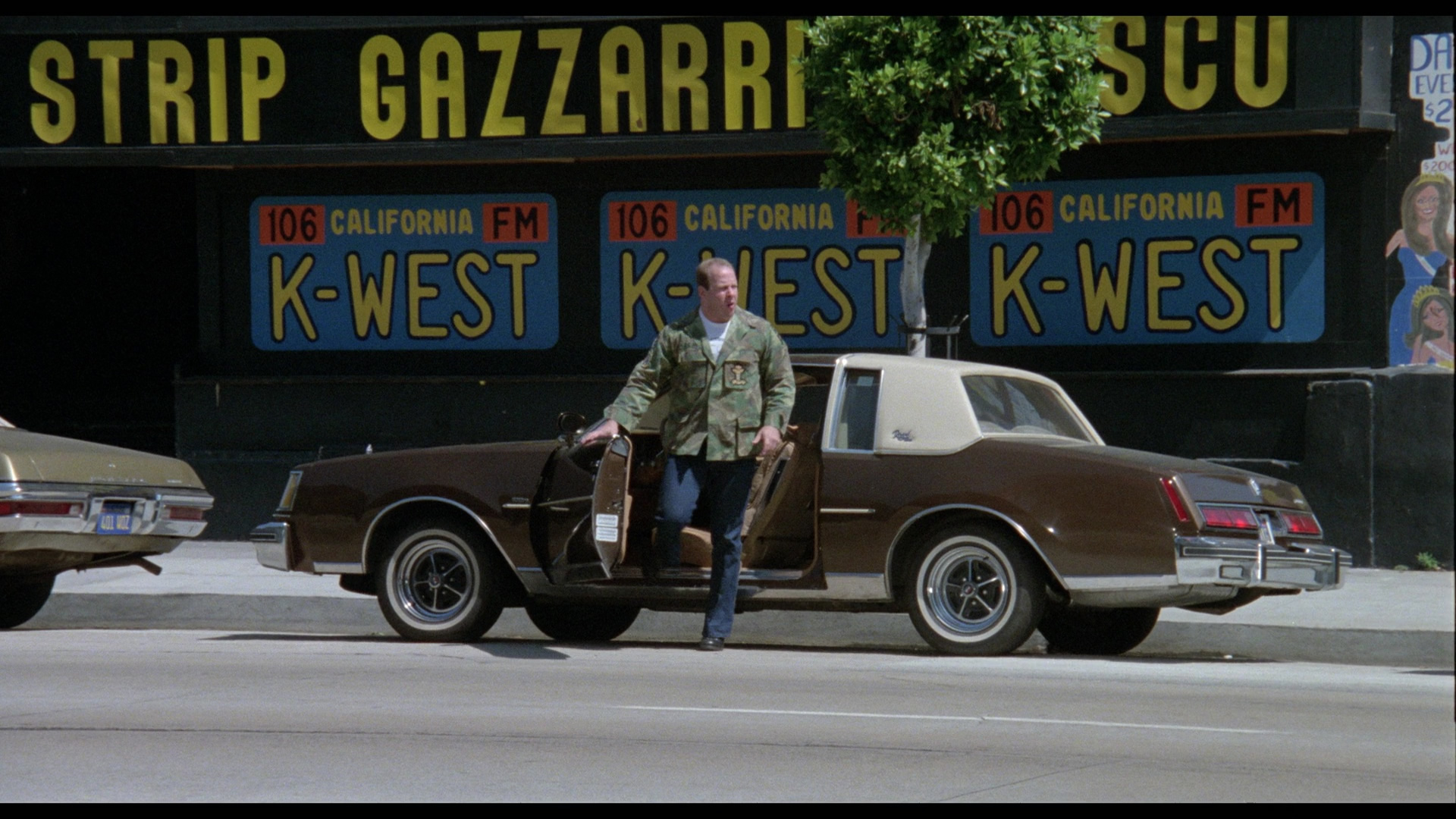 Crown's more successful films (at least before their plunge into '80s teen comedies), Don't Answer the Phone! had a very rocky start on DVD when it fell into the hands of Rhino Video. A drastically edited, lousy TV print missing all of the nudity and
Crown's more successful films (at least before their plunge into '80s teen comedies), Don't Answer the Phone! had a very rocky start on DVD when it fell into the hands of Rhino Video. A drastically edited, lousy TV print missing all of the nudity and  violence (just under ten minutes' worth!) was used for their standalone DVD release, and it popped up again for a reissue in the second volume of their Horrible Horrors series. In 2006, BCI licensed many Crown titles and gave this one the full special edition treatment courtesy of an uncut anamorphic transfer and a selection of extras including a commentary with one-shot director Robert Hammer (moderated by writer Shane M. Dallmann, both of whom also do an on-camera intro), a 13-minute "Answering the Phone" video interview with Worth shortly before his death (full disclosure: yours truly worked on that one), a gallery, the trailer, and eight minutes of additional Worth comments about the rest of his career. A BCI double bill followed one year later pairing this with Roberta Findlay's Prime Evil, but both are now long discontinued. The feature itself also resurfaced in early 2009 as part of the post-BCI, 8-film collection, Drive-In Cult Classics Vol. 4, wedging among much tamer fare like The Van, The Young Graduates, and Chain Gang Women.
violence (just under ten minutes' worth!) was used for their standalone DVD release, and it popped up again for a reissue in the second volume of their Horrible Horrors series. In 2006, BCI licensed many Crown titles and gave this one the full special edition treatment courtesy of an uncut anamorphic transfer and a selection of extras including a commentary with one-shot director Robert Hammer (moderated by writer Shane M. Dallmann, both of whom also do an on-camera intro), a 13-minute "Answering the Phone" video interview with Worth shortly before his death (full disclosure: yours truly worked on that one), a gallery, the trailer, and eight minutes of additional Worth comments about the rest of his career. A BCI double bill followed one year later pairing this with Roberta Findlay's Prime Evil, but both are now long discontinued. The feature itself also resurfaced in early 2009 as part of the post-BCI, 8-film collection, Drive-In Cult Classics Vol. 4, wedging among much tamer fare like The Van, The Young Graduates, and Chain Gang Women. 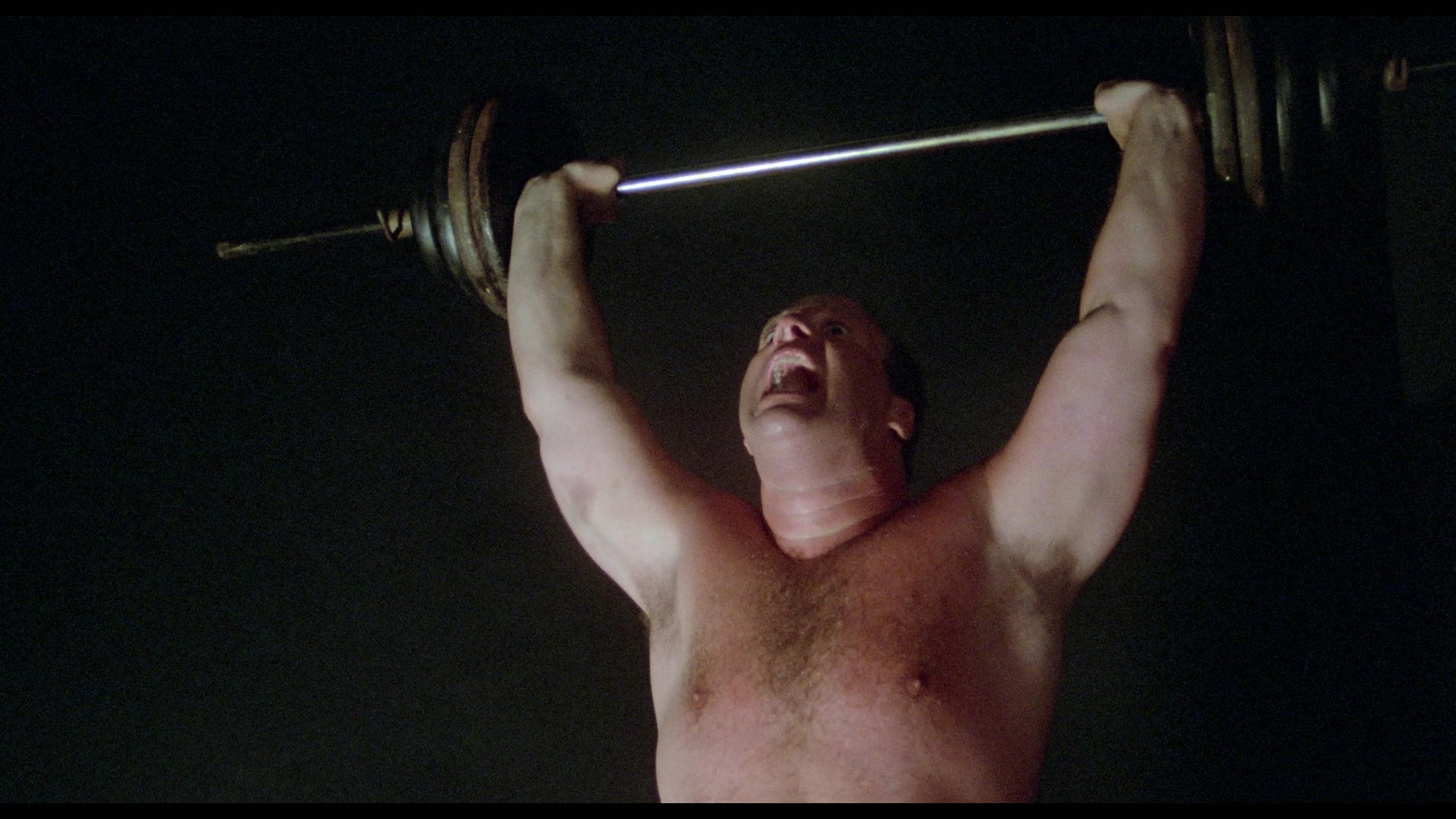 everything is framed almost dead center throughout. The quality itself is far better; there are actual shades of red now, and flesh tones are far more natural and saturated than before. Color values in general are more impressive throughout, and there's a darker, more moody appearance compared to the blown-out look of the BCI. For a comparison, check out this shot from the BCI compared to this one from the Scorpion. As usual, audio is mono and sounds fine considering the very limited nature of the original recording.
everything is framed almost dead center throughout. The quality itself is far better; there are actual shades of red now, and flesh tones are far more natural and saturated than before. Color values in general are more impressive throughout, and there's a darker, more moody appearance compared to the blown-out look of the BCI. For a comparison, check out this shot from the BCI compared to this one from the Scorpion. As usual, audio is mono and sounds fine considering the very limited nature of the original recording.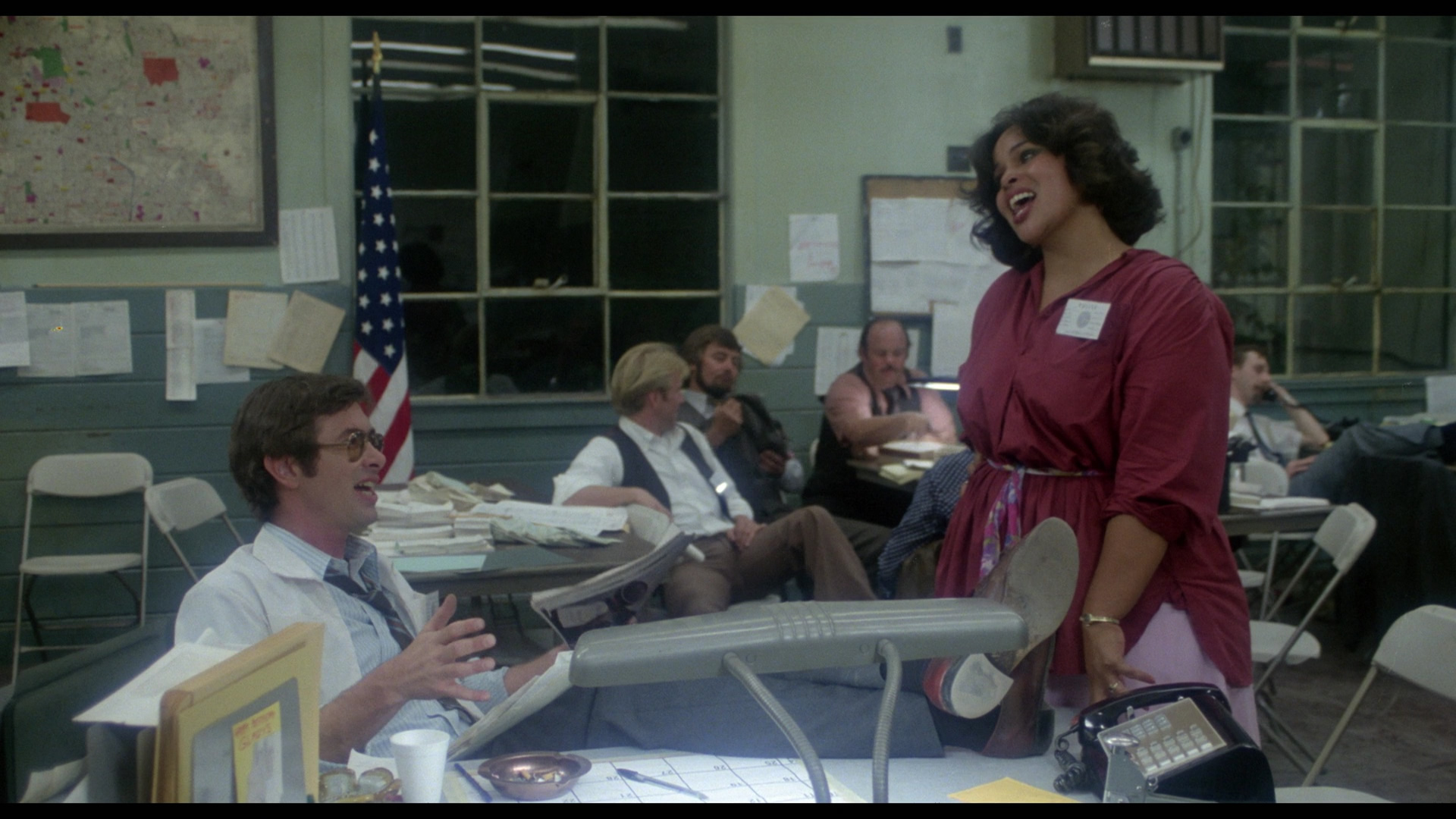

 Surprisingly, the film got another special edition go-round in 2017 from Vinegar Syndrome as part of its welcome foray into the Crown world, this time as a dual-format Blu-ray and DVD edition. This release also adds optional English SDH subtitles for the first time, a welcome touch that allows you to savor a wide array of peculiar captions from start to finish. The transfer is touted as a new 4K scan of the recently uncovered camera negative, and the results are substantially different from how we've seen the film before. It's brighter and clearer than any other transfer, with more naturalistic colors and a slick, clean appearance (apart from the opening and closing credits, which obviously drop a generation or two due to optical printing). Though the framing is extremely similar (the Vinegar Syndrome is framing just a tad tighter at 1.85:1), the Scorpion is much darker by comparison; for example, click on the frame grabs here and here from the Scorpion release compared to the ones seen in this paragraph on the left and right. The DTS-HD MA English mono audio also sounds pristine, and in a very welcome bonus, the entire music score by Byron Allred is included as an isolated track; it's great to finally have this wild synthesizer freak out available all by itself. The Hammer commentary and video intro finally make their return here, along with both of the Nicholas Worth featurettes and the theatrical trailer. Also included are a pair of TV spots (one of which is so rough it's impossible to imagine it actually airing), a gallery of stills and poster art, and a liner notes booklet by Michael Gingold who lays out the film's Hillside Strangler inspiration (and the real-life killer's other cinematic outings) as well as this film's odd release history around the world.
Surprisingly, the film got another special edition go-round in 2017 from Vinegar Syndrome as part of its welcome foray into the Crown world, this time as a dual-format Blu-ray and DVD edition. This release also adds optional English SDH subtitles for the first time, a welcome touch that allows you to savor a wide array of peculiar captions from start to finish. The transfer is touted as a new 4K scan of the recently uncovered camera negative, and the results are substantially different from how we've seen the film before. It's brighter and clearer than any other transfer, with more naturalistic colors and a slick, clean appearance (apart from the opening and closing credits, which obviously drop a generation or two due to optical printing). Though the framing is extremely similar (the Vinegar Syndrome is framing just a tad tighter at 1.85:1), the Scorpion is much darker by comparison; for example, click on the frame grabs here and here from the Scorpion release compared to the ones seen in this paragraph on the left and right. The DTS-HD MA English mono audio also sounds pristine, and in a very welcome bonus, the entire music score by Byron Allred is included as an isolated track; it's great to finally have this wild synthesizer freak out available all by itself. The Hammer commentary and video intro finally make their return here, along with both of the Nicholas Worth featurettes and the theatrical trailer. Also included are a pair of TV spots (one of which is so rough it's impossible to imagine it actually airing), a gallery of stills and poster art, and a liner notes booklet by Michael Gingold who lays out the film's Hillside Strangler inspiration (and the real-life killer's other cinematic outings) as well as this film's odd release history around the world. ![]()